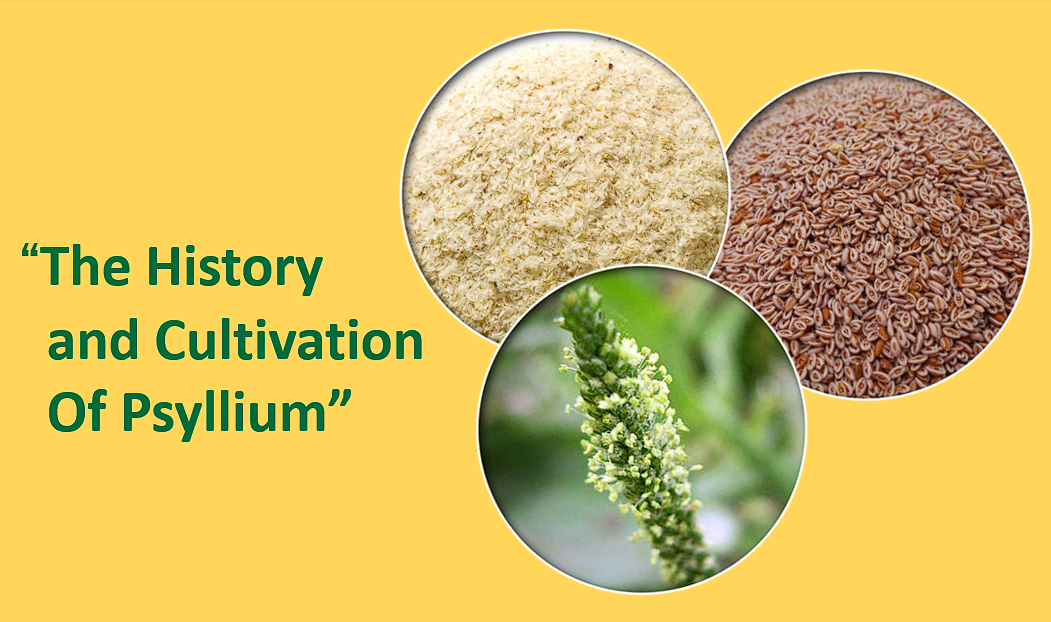Psyllium is a plant-based dietary fiber that is commonly used as a supplement for digestive health. It is a type of soluble fiber that is derived from the seeds of the Plantago ovata plant, which is native to India. This plant has been used for medicinal purposes for thousands of years and has been mentioned in ancient Hindu and Ayurvedic texts. In this blog, we will explore the history and cultivation of psyllium, as well as its various health benefits.
History of Psyllium
Psyllium has a long history of use in traditional medicine, with records dating back to ancient times. In ancient Hindu texts, psyllium was referred to as ispaghula, which means “horse flower”, and was used to treat various digestive problems, including constipation, diarrhea, and irritable bowel syndrome (IBS). It was also used as a natural remedy for other health issues, such as high cholesterol, heart disease, and obesity.
Psyllium was first introduced to Europe and North America in the late 1800s, when it was used as a natural laxative. In the 1970s, psyllium gained popularity as a supplement for digestive health, and it has since become one of the most widely used dietary fibers in the world. Today, psyllium is commonly used in a variety of products, including fiber supplements, laxatives, and meal replacement drinks.
Cultivation of Psyllium
Psyllium is primarily cultivated in India, where the climate and soil conditions are ideal for its growth. The plant is a hardy annual that can grow up to 30 cm in height and produces small, white flowers. The seeds of the plant are collected and processed to produce psyllium husk, which is the main source of soluble fiber in psyllium supplements.
The cultivation of psyllium involves planting the seeds in well-drained soil, and then harvesting the plants when they reach maturity. The seeds are then separated from the plant, cleaned, and processed to produce psyllium husk. The husk is then packaged and sold as a dietary supplement or added to other products, such as breakfast cereals and protein bars.
Health Benefits of Psyllium
Psyllium has a number of health benefits, due to its high soluble fiber content. Soluble fiber is known for its ability to absorb water and form a gel-like substance in the gut, which can help to regulate bowel movements and relieve constipation. Additionally, psyllium can help to lower cholesterol levels and reduce the risk of heart disease by binding with dietary cholesterol and preventing its absorption into the bloodstream.
One of the most notable health benefits of psyllium is its ability to promote digestive health. This is due to its ability to regulate bowel movements, relieve constipation, and reduce the symptoms of IBS. Psyllium can also help to reduce the symptoms of diarrhea by absorbing excess water in the gut, which can help to regulate bowel movements and prevent dehydration.
Psyllium is also known for its ability to aid in weight management. This is due to its ability to promote feelings of fullness and reduce appetite, which can help to prevent overeating. Additionally, psyllium can help to regulate blood sugar levels, which is beneficial for individuals with diabetes or who are at risk of developing diabetes.
Conclusion
In conclusion, psyllium is a plant-based dietary fiber that has a long history of use in traditional medicine for digestive health and other health issues. Cultivated primarily in India, psyllium is now widely used as a supplement for its numerous health benefits, including its ability to regulate bowel movements, relieve constipation, lower cholesterol levels


